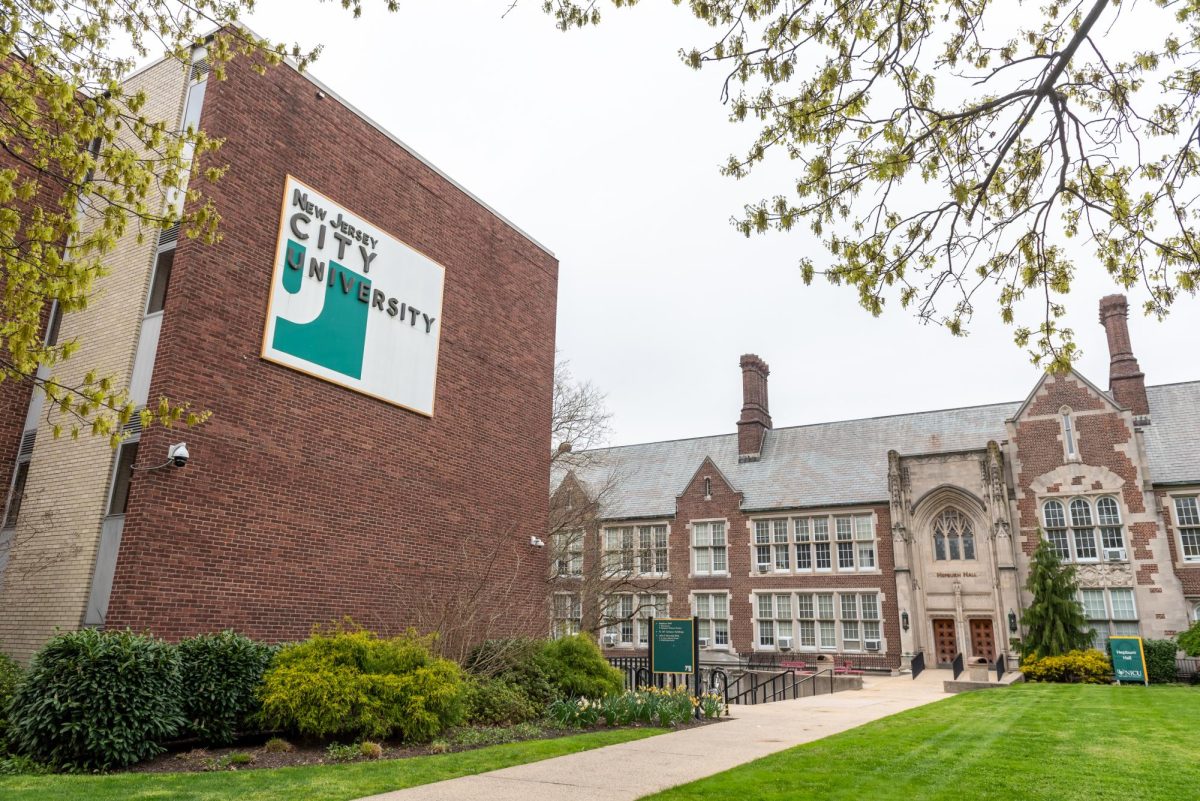Move may have broken law, official says
By Rafal Rogoza, Monir Khilla and Allison Lozada –
Council members and some students in the audience were told to leave during a discussion and vote at a recent Student Government Organization (SGO) meeting, a move that may have violated New Jersey State law.
“I just don’t understand why they would do that,” said Adam Goldstein, attorney advocate for the Student Press Law Center, when informed about the SGO action.
“This vote pertains to the people that went to India…So if you attended the India trip you have to step out of the meeting because you’re not allowed to participate in the discussion or the vote,” said Aurora Estevez, SGO VP of Finance and Administration, during the council session, “That also pertains to people that have went to India and are part of the audience.”
Six council members that attended the trip left the February 28th meeting and were not allowed to take part in the vote that would have reimbursed $7,500 to students who attended the India study abroad trip last January.
The motion failed as only 6 council members supported it and 12 voted against it.
 Dean of Students, Lyn Hamlin and SGO advisor James Robilotta discussed and agreed with the SGO Executive Board to clear the room of students who had gone on the trip because of a “conflict of interest.”
Dean of Students, Lyn Hamlin and SGO advisor James Robilotta discussed and agreed with the SGO Executive Board to clear the room of students who had gone on the trip because of a “conflict of interest.”
“If they (the student government) are subject to the open meetings law – and I believe they are – there’s no question there was a violation of the law. Asking people to leave a meeting because of a conflict of interest is asinine behavior. As a member of the public, you are allowed to have an interest,” said Goldstein.
Goldstein cited New Jersey state law and said, “Any member of the public has a right to be present at all meetings of public bodies. Public bodies are bodies to which governmental functions are delegated. Are the students performing a function delegated to them by a higher governmental funding authority? If so, they are a public body and subject to the law.”
“We weren’t trying to break the law,” said Hamlin.
According to Hamlin, it didn’t seem fair for council members that attended the trip to vote because of a conflict of interest.
“It sounded logical to us that people who got the money not be part of the vote,” said Hamlin.
“I was not aware of the law,” said Robilotta.
“Admin[istration] strongly recommended to have them leave,”said Robilotta.
“There was no sinister motive,” said John Melendez, VP for Student Affairs, who said he advised council members that voting on their own conpensation would represent a conflict of interest. He said he advised council members who attended the trip to recuse themselves from the discussion and debate about compensation.
“There was a discussion, there were mixed opinions overall. When we discussed it they [the executive board] were okay with the decision.”
“From my understanding, it was the general feel of the executive board that it would be a conflict of interest to have the participants in the room and a more open and honest discussion would be had if they were not in the room,” said Robert Quinones, Coordinator of Community Services and Greek Life.
SGO council meetings are structured by the Robert’s rules of order — a guide book on how deliberations at an assembly should proceed.
Dr. Fran Moran, political science professor, observed the meeting and said, “Asking the people who would been impacted by this to leave is against the Robert’s rules of order.”
“I thought it was fair because I thought it was part of Robert’s rules,” said Estevez.
“I think it was skewed…that everyone who spoke against it stayed,” said Michael Faivush, President of SGO.
Faivush left the meeting because he attended the India trip.
Asked if he felt forced to leave, Faivush said, “Was I technically forced? No. But we were strongly influenced on a method of conducting the vote which we later found out was not valid.”
Giselle Ojagir, SGO Executive Vice President, also left the meeting.
Goldstein said violations of the Open Meetings Act can result in fines against the offending body. He said such cases are unusual, but they do happen. He cited a case at Montclair State University, a couple of years ago, where their SGO settled a case out of court. As part of the settlement, the SGO agreed to abide by the Open Meetings Act.
According to Ojagir, she didn’t know asking students to leave the meeting was against the law and that it wasn’t part of the Robert’s rules of order.
“When we vote for a new club we ask them to leave that vote so they won’t know who voted for or against,” said Ojagir, who thought the same procedure applied to the reimbursement vote.
“It seemed that we had to leave so we did. I never asked to stay. We were told to do so, so I didn’t resist,” said Jennifer Vazquez, 21, BFA painting and drawing major from Jersey City. Vazquez is a voting member of the council.
Ask how she would have voted if she stayed, Vezquez said “I would have voted against the reimbursement because I decided to go on the trip knowing I wasn’t going to get the $500 back. I didn’t want to seem greedy. I think it looks good as a student leader and we were never guaranteed this compensation.”
“I definitely would have voted for us to get the $500 back,” said Corrado DeVincenzo, 22, Junior Class President from Bayonne. The money would have helped him with his college expenses.
DeVincenzo, a voting council member, was removed from the meeting.
“Nobody can talk about the India trip as we can,” said DeVincenzo.
DeVincenzo said he understood why the executive board may have conflict of interest concerns but once he was informed that it was a violation of the Robert’s rules of order he considered the vote unfair.
“Well I feel like half the people on council were missing, so we didn’t get a full perspective,” said Frank Fernandez, 29, environmental science major from Jersey City.
Fernandez voted for the motion.
“No, it wasn’t fair they didn’t have a say in the discussion but it also wouldn’t have been fair if they had a vote,” said Emanuel Alvarez, 28, sociology major from Union City who voted against the motion.
Alvarez considered the conflict of interest concerns legitimate.
Asked if the council could vote on the motion again Moran said, “No. There is a motion to rescind, but it has to be during the same meeting and it has to be done by the winning side.”
According to Moran the council cannot reintroduce the same motion, however, they may introduce a similar, but new motion.













